Spotify – Scales Practice
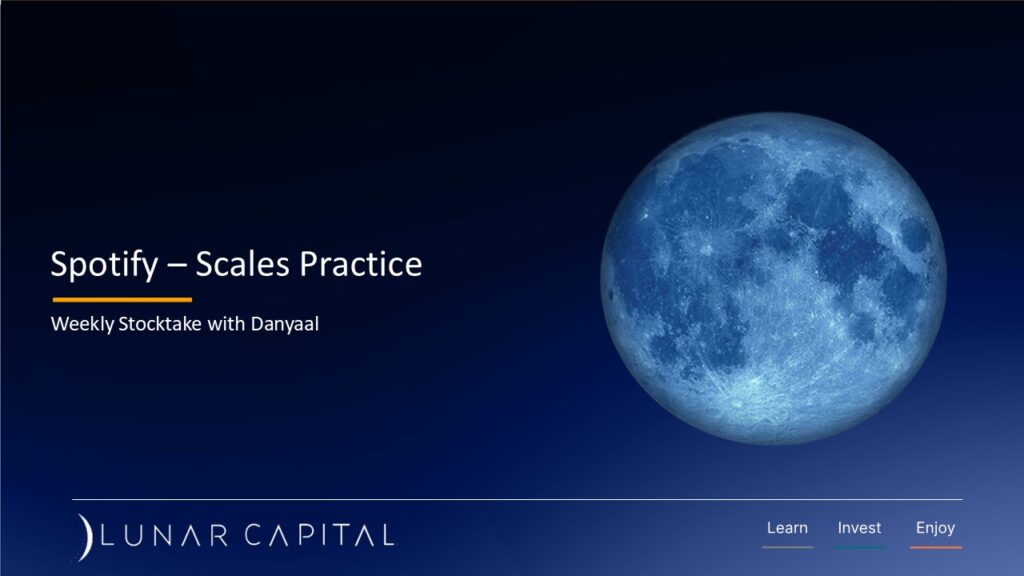
Are there limits to Spotify’s growth?
Amazon – AI and Beyond
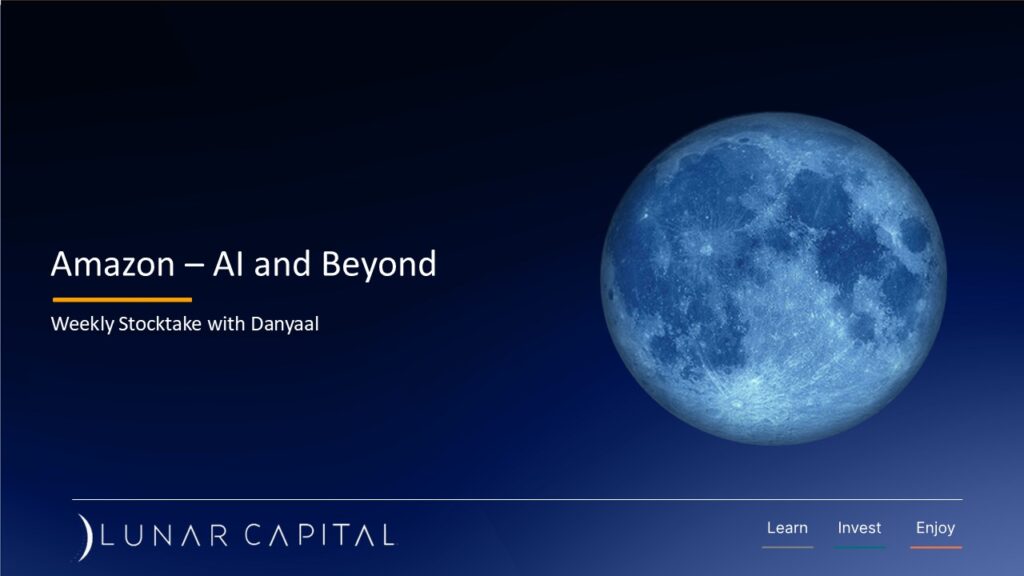
What else is driving Amazon?
Microsoft – On OpenAI Watch
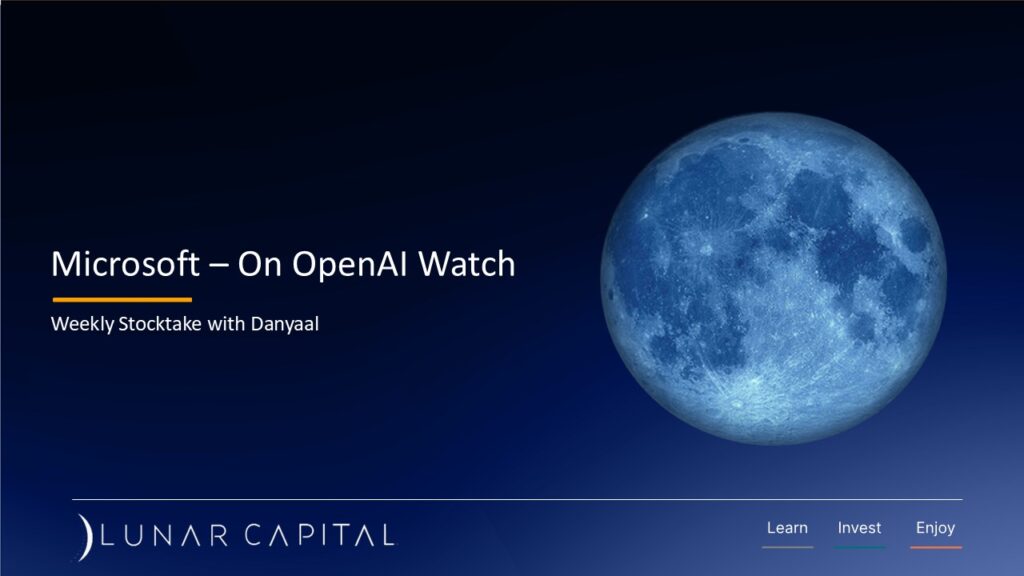
What do Microsoft’s recent results suggest about the risks associated with OpenAI?
Lunar Capital Quarterly Investment & Portfolio Review – 31 December 2025
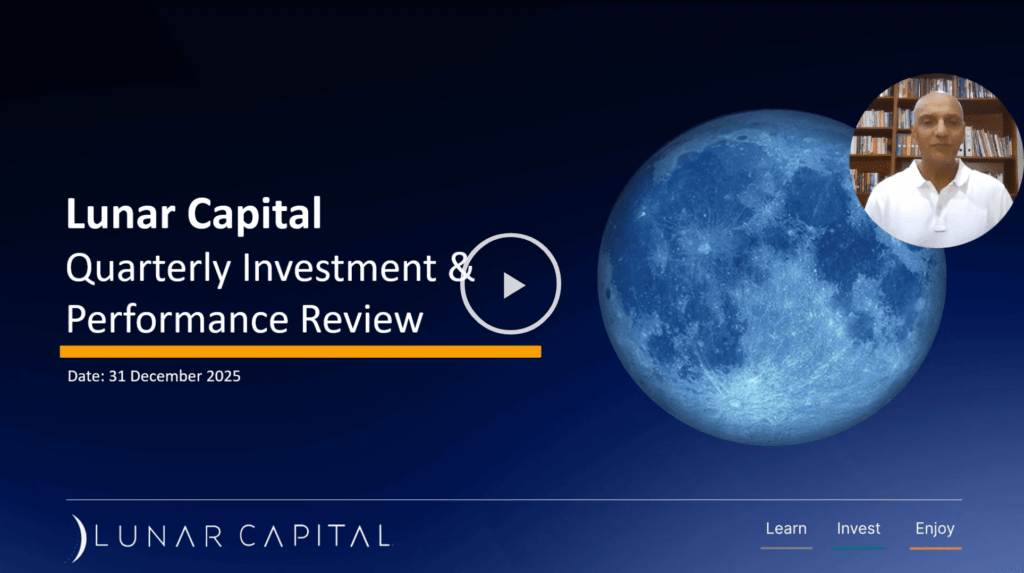
Sabir provides an update of the Funds’ performance and how Lunar Capital is investing in the current environment.
Precision is Expensive
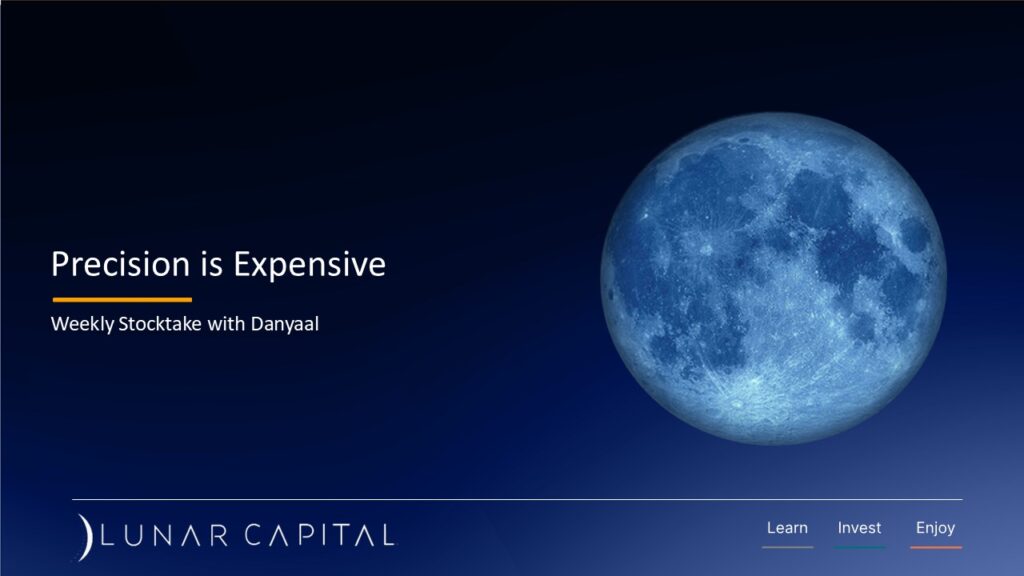
Why does Intuitive Surgical trade at an expensive valuation?
TSMC – Disciplined Growth
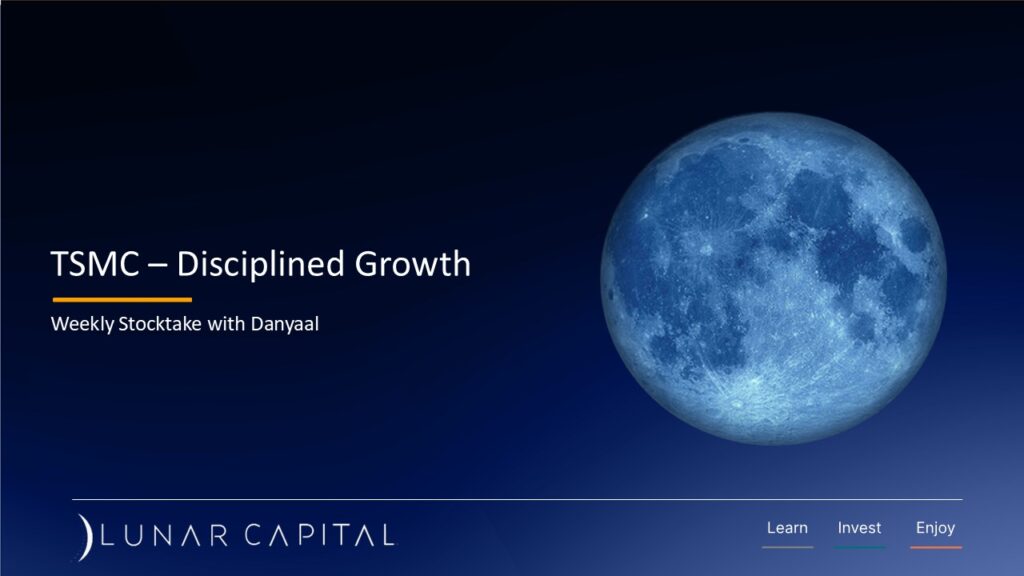
How is TSMC making the AI growth story possible?
Game of Bids
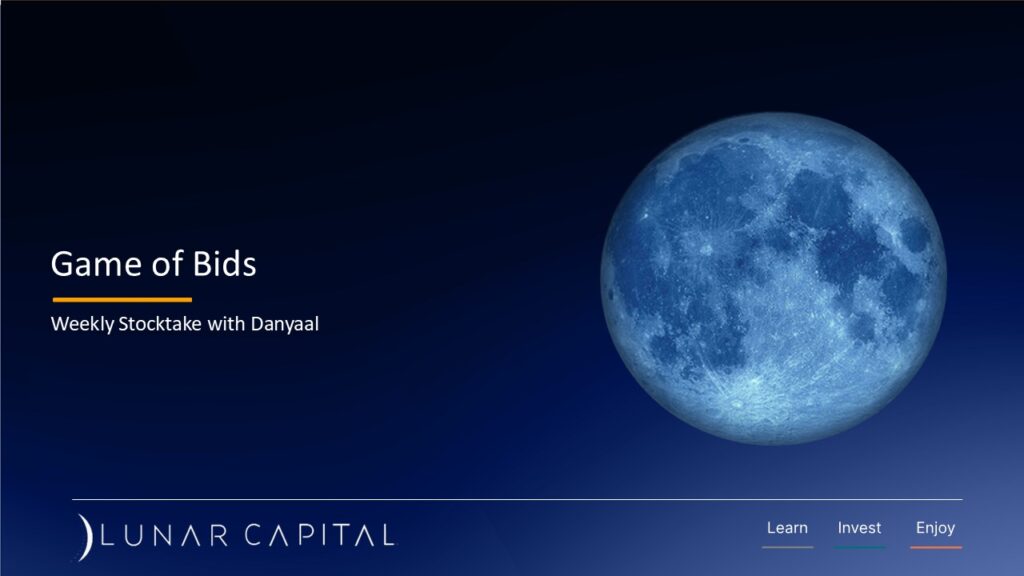
Will the acquisition of Warner Bros Discovery be different this time?
Alibaba – A Chinese Streamlined Model
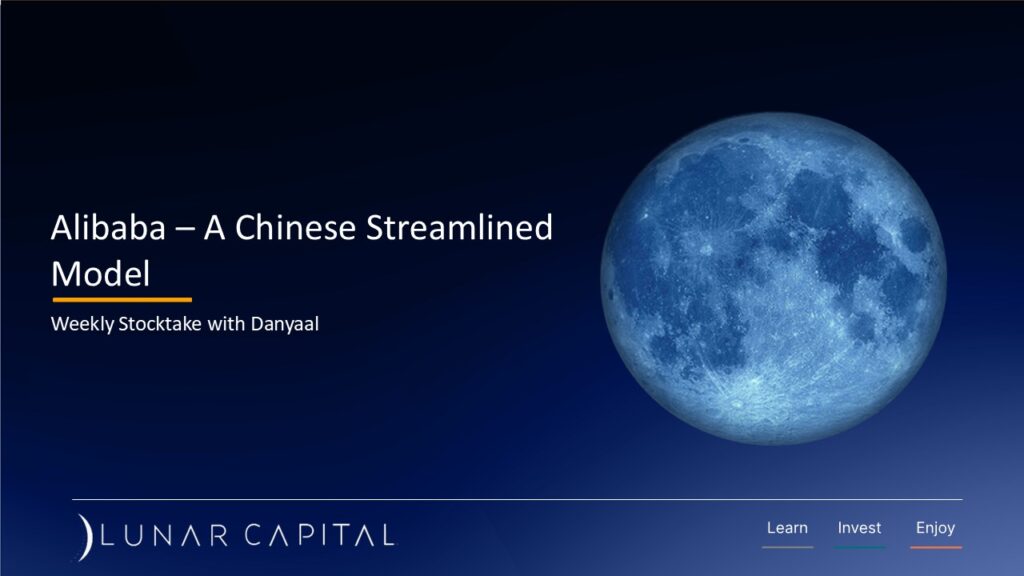
How one of China’s greatest business success stories is revitalising itself for growth.
Nvidia – Bubble or Brilliant?

Let’s cut through the noise around Nvidia’s recent results.
Disney – Too Much of a Good Thing
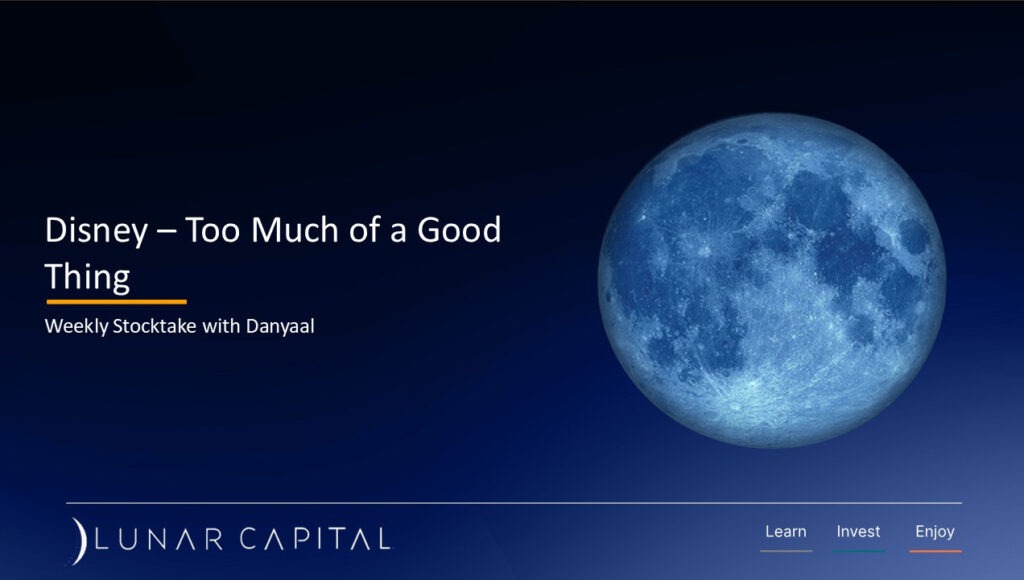
Has Disney become a villain in their own story?
